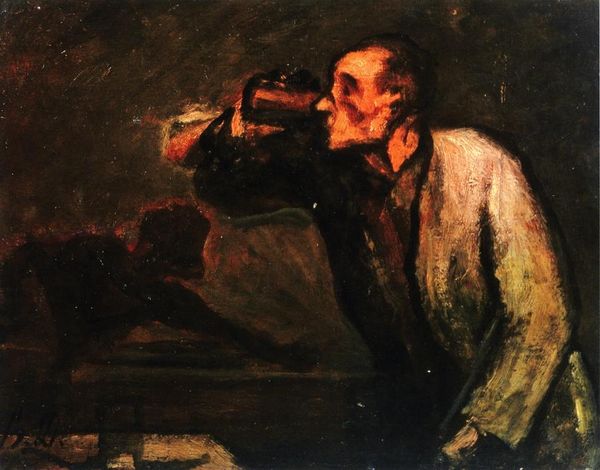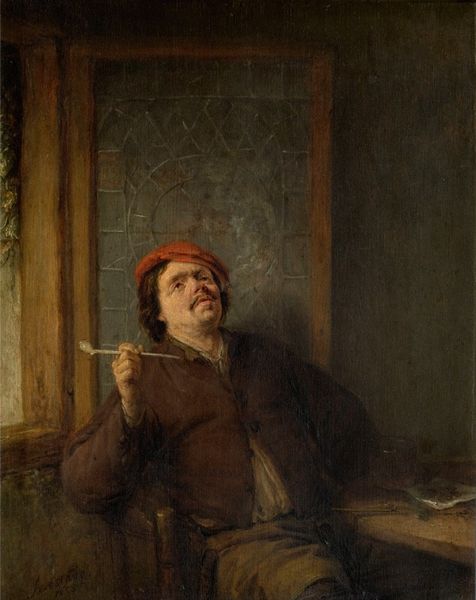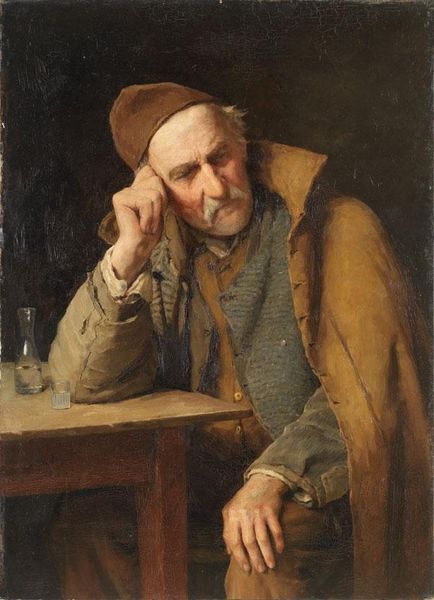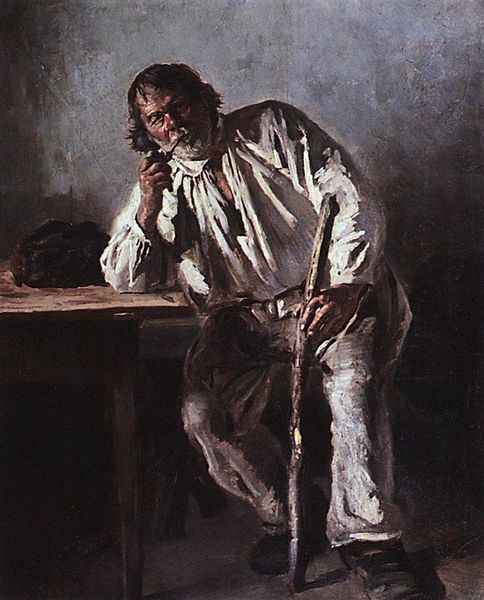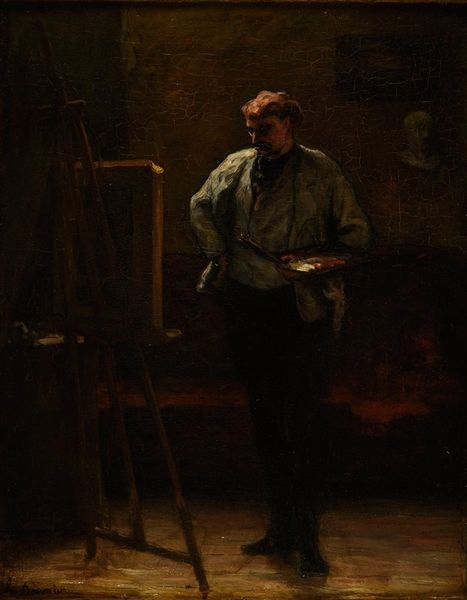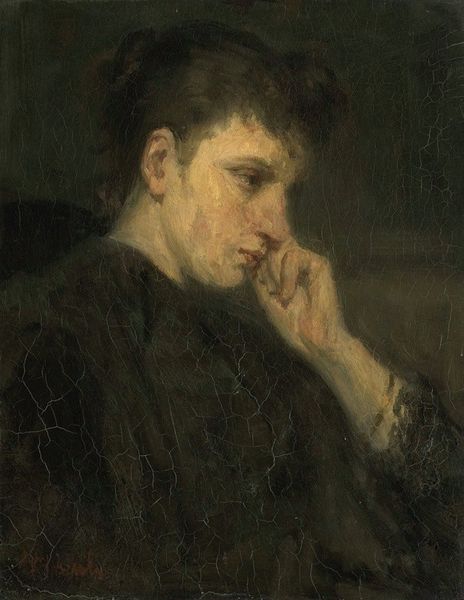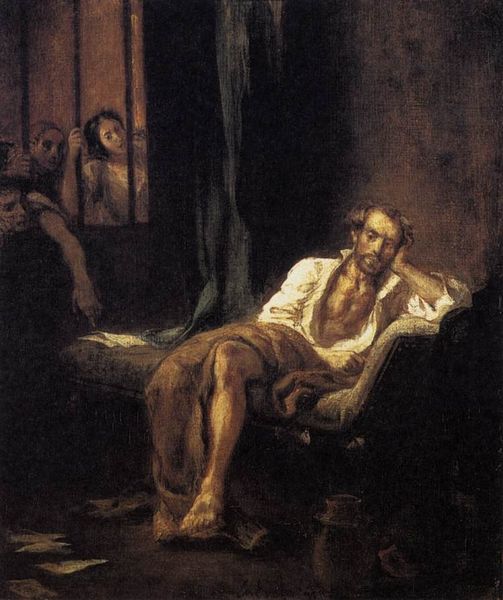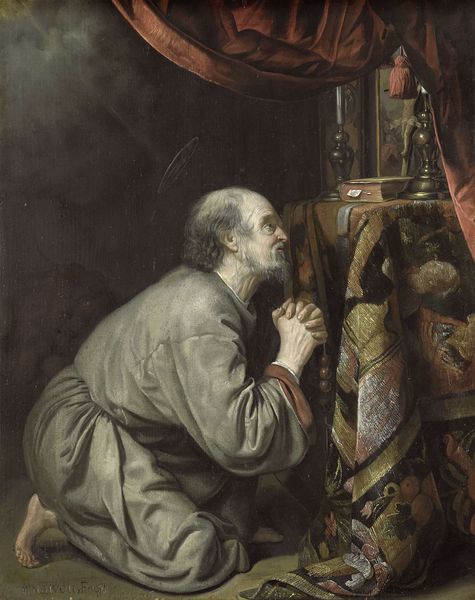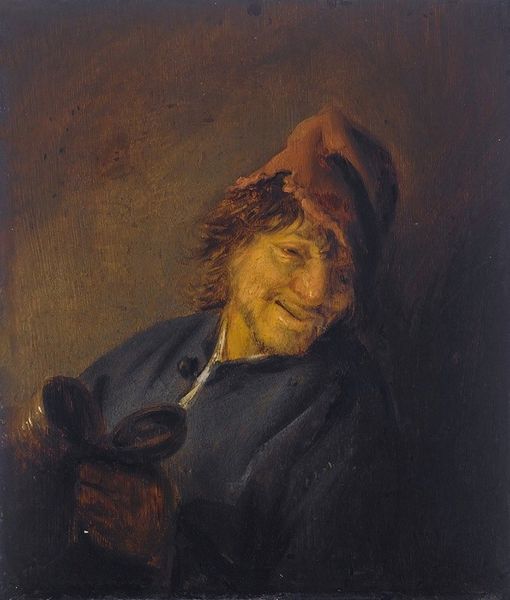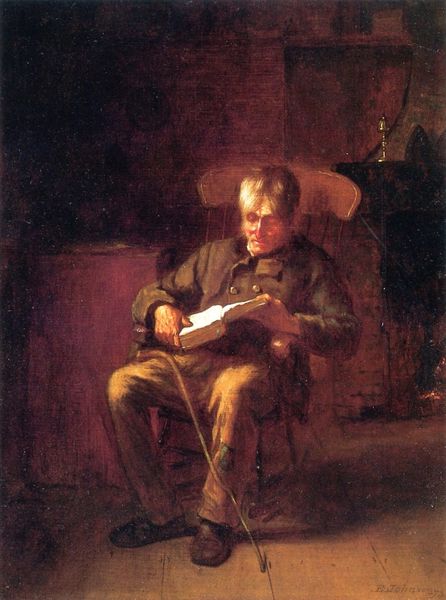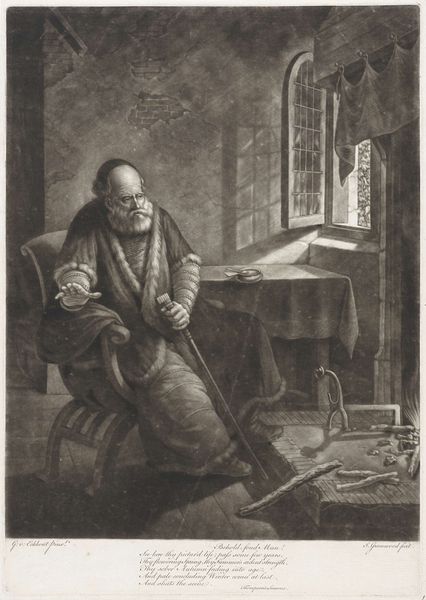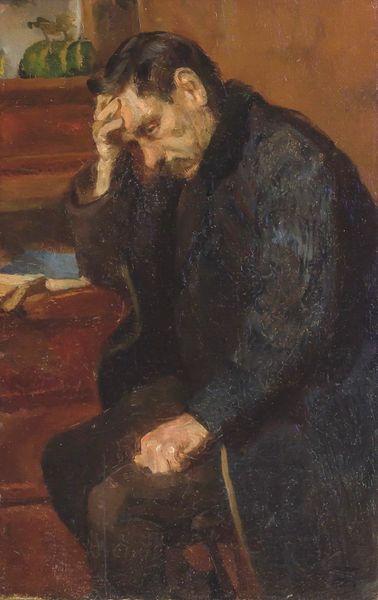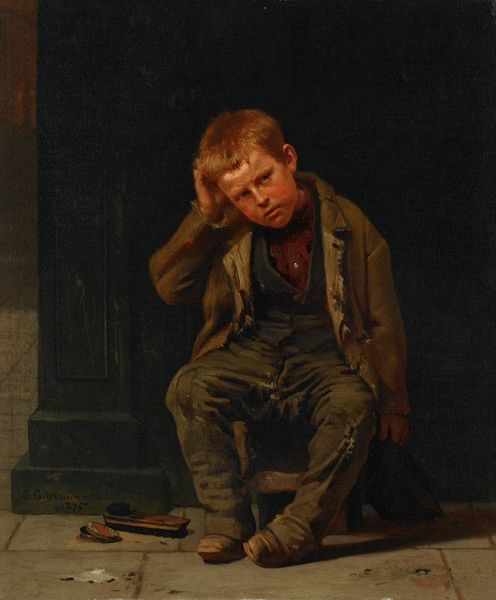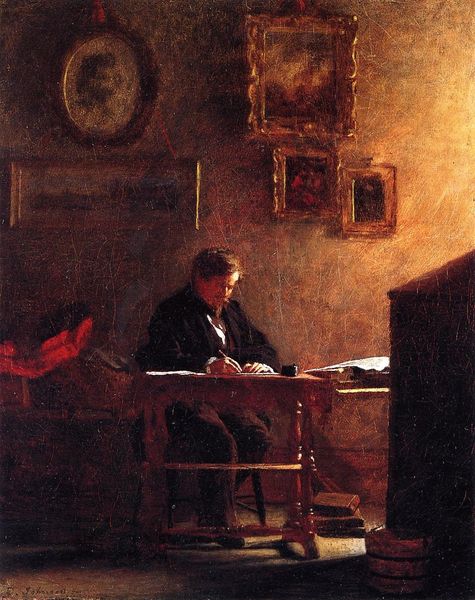
painting, oil-paint
#
portrait
#
painting
#
oil-paint
#
oil painting
#
neo expressionist
#
genre-painting
#
academic-art
#
expressionist
#
realism
Copyright: Public domain
Curator: We are standing before Vladimir Makovsky's oil painting, "The Prisoner," created in 1882. It is currently held at the Kharkiv Museum of Fine Arts. Editor: Woah. The painting's immediate effect is one of deep melancholy. The man's hunched posture and the oppressive darkness almost swallow him. Curator: The composition uses a limited palette, predominantly dark browns and blacks, which emphasizes the somber mood. Notice how the light catches his face, drawing our attention to his expression, or the absence thereof. Editor: His hands are clasped so tightly. It looks like he is praying, or perhaps he's just trying to hold himself together. There's a palpable sense of isolation. I wonder what crime, real or imagined, led to this... resignation? Curator: The work exemplifies a key moment in Russian realism, pivoting towards social critique. Makovsky often depicted scenes of everyday life, but with an emphasis on injustice and suffering. Consider the sparse details; the table with what appears to be a bible, a dark and windowless space. Editor: Absolutely. The setting tells the story. You can almost smell the damp stone. And the book… a silent accuser or the prisoner's last comfort? The shadows play a powerful role here, almost another character in the drama. Are they of the external world, or his internal demons? Curator: Precisely. The darkness contributes significantly to the symbolic weight, perhaps functioning metonymically for the imprisonment of the mind and spirit as much as physical confinement. Editor: Right. The painting isn't just about imprisonment; it explores universal themes of regret, hope, and human resilience, even in the face of overwhelming despair. You just wonder what one must do, to earn such... stillness. Curator: The artist’s strategic use of light and shadow, coupled with the subject’s pensive posture, compels us to reflect on justice, morality, and human dignity. Editor: It really sticks with you, doesn't it? More than just brushstrokes and colors; Makovsky captures a raw, unfiltered emotional truth.
Comments
No comments
Be the first to comment and join the conversation on the ultimate creative platform.
